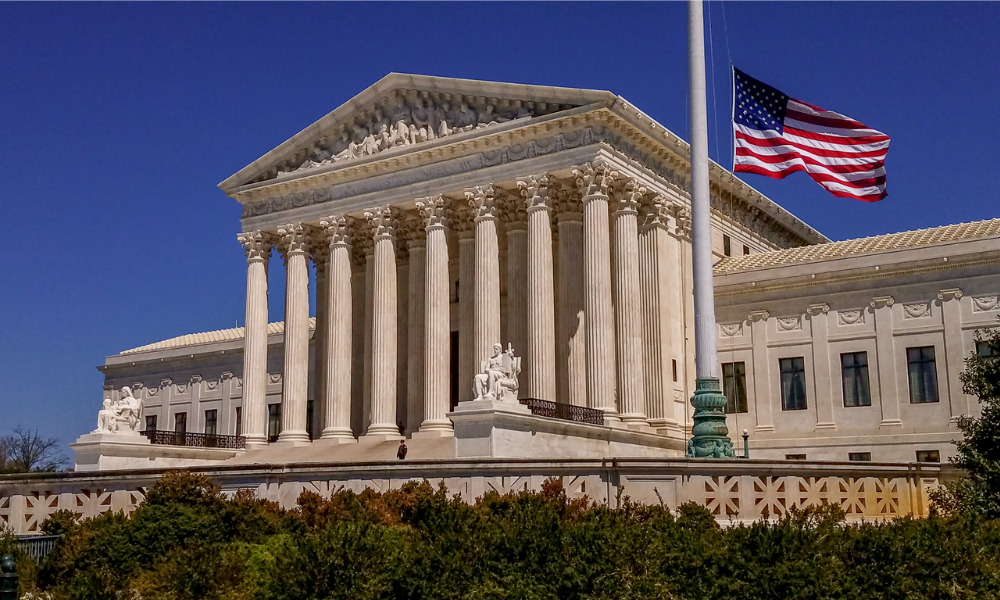
Will companies continue to cover travel expenses for employees who must go outside their state for abortions?

As expected, the U.S. Supreme Court overturned Roe v. Wade in a 6-3 decision on Friday, granting states the power to establish their own abortion laws.
More than half the country (26 states) would certainly or be likely to ban abortion, according to the Guttmacher Institute. While states like Michigan and Wisconsin have anti-abortion laws that predate Roe, 13 states, including Ohio, Arkansas and North Dakota, have laws that would go into effect soon after Roe is overruled, NBC News reported.
Read more: ‘It’s scary’ if Roe v. Wade is overturned, says Women Corporate Directors CEO
San Francisco-based companies like Yelp and Levi Strauss & Co., as well as Amazon, Citigroup and other firms, have previously pledged to cover travel expenses for employees who must go outside their state for abortions. California companies like Apple and Salesforce have previously offered such benefits in response to Texas’ law banning all abortions after about six weeks of pregnancy.
Meanwhile, Lyft and Uber have said they would cover legal fees for drivers sued under the Texas or new Oklahoma law, which punishes people aiding the procedure, including doctors, people paying for the procedure and clinic workers. That includes rideshare drivers who could be fined up to $10,000.
Expect to see litigation involving these companies and states, especially as more states incorporate similar laws, says Meredith Kirshenbaum, a labor and employment attorney with Chicago-based law firm Goldberg Kohn.
“There’s some risk that states where there are laws in place might try to penalize or punish businesses in other ways,” Kirshenbaum told HRD in May. “Companies are making a decision and they’re weighing the risk. They’re sending a signal that they’re supportive of social issues their workforce believes in. There’s also a recruitment and retention element to it. They’re worried the progressive workforce might not want to continue to live in or move to a state with restrictive measures in place. That would affect companies’ ability to get top talent.”
Justice Samuel Alito, as predicted in a leaked draft ruling, wrote the majority opinion that tossed out Roe, as well as a 1992 Supreme Court decision upholding abortion rights in a case known as Planned Parenthood v. Casey.
“The Constitution makes no reference to abortion, and no such right is implicitly protected by any constitutional provision, including the one on which the defenders of Roe and Casey now chiefly rely — the Due Process Clause of the Fourteenth Amendment,” Alito wrote. “That provision has been held to guarantee some rights that are not mentioned in the Constitution, but any such right must be ‘deeply rooted in this Nation’s history and tradition’ and ‘implicit in the concept of ordered liberty.’”
Alito was joined by Chief Justice John Roberts and three justices appointed by former President Donald Trump: Neil Gorsuch, Brett Kavanaugh and Amy Coney Barrett. “It is time to heed the Constitution and return the issue of abortion to the people’s elected representatives,” Alito wrote.
In their joint dissent, the court’s liberal justices wrote, “The majority has overruled Roe and Casey for one and only one reason: because it has always despised them, and now it has the votes to discard them. The majority thereby substitutes a rule by judges for the rule of law.”
“The majority would allow States to ban abortion from conception onward because it does not think forced childbirth at all implicates a woman’s rights to equality and freedom,” said the dissent by Stephen Breyer, Sonia Sotomayor and Elena Kagan. “Today’s Court, that is, does not think there is anything of constitutional significance attached to a woman’s control of her body and the path of her life. A state can force her to bring a pregnancy to term, even at the steepest personal and familial costs.”